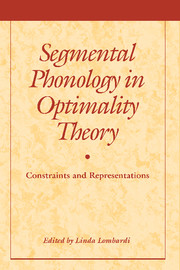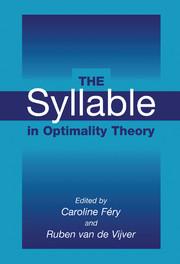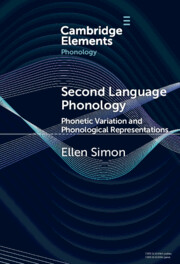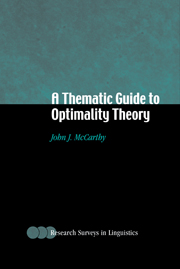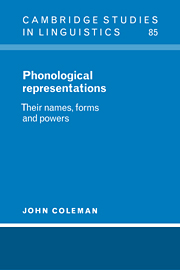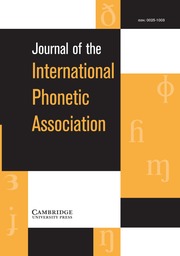Segmental Phonology in Optimality Theory
Optimality theory has rapidly become the dominant framework in formal phonological theory. OT fundamentally revises the basic notions of generative grammar, replacing rules and derivations with a system of interacting constraints. Early work in OT tended to concentrate mainly on prosodic phonology and the phonology-morphology interface, and it was not initially clear how the theory could attack the rich range of phenomena found in segmental alterations. However, there is a body of work that concentrates on working out the details of featural phonology with OT, and this work shows that the theory allows superior explanations of the typological possibilities and the underlying motivations for these phenomena. This volume, first published in 2001, brings together work by some of the influential researchers in this area, ranging from the authors of influential dissertations to prominent senior faculty.
- A volume dedicated exclusively to the analysis of segmental phonology in optimality theory
Product details
November 2001Hardback
9780521790574
310 pages
229 × 152 × 19 mm
0.55kg
Available
Table of Contents
- List of contributors
- Introduction Linda Lombardy
- Part I. The Content of Representations:
- 1. Why place and voice are different: constraint-specific alternations in optimality theory Linda Lombardi
- 2. Constraints and representations in subsegmental phonology Cheryl Zoll
- 3. Phonological contrast and articulatory effort Robert Kirchner
- 4. Markedness, segment realization, and locality in spreading Máire Níchiosain and Jaye Padgett
- Part II. The Content of Constraints:
- 5. Austronesian nasal substitution revisited: what's wrong with *ṆC (and what's not) Joe Pater
- 6. A critical view of licensing by cue: codas and obstruents in Eastern Andalusian Spanish Chip Gerfen
- Part III. The Structure of the Grammar: Approaches to Opacity
- 7. Segmental unmarkedness versus input preservation in reduplication Moira Yip
- 8. Local conjunction and extending sympathy theory: OCP effects in Yucatec Maya Haruka Fukazawa
- 9. Structure preservation and stratal opacity in German Junko Ito and Armin Mester
- Index.

